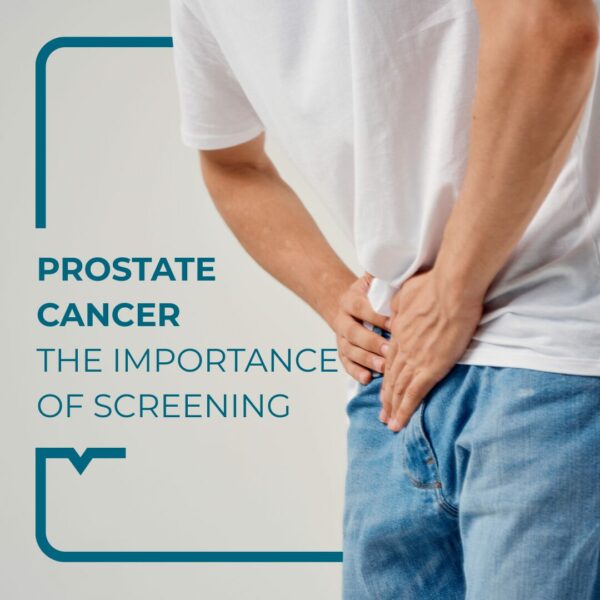Prostate Cancer: the importance of screening
Prostate cancer: understand the risks, the importance of screening, and treatment options for maintaining men’s health.
Read more

Nutrition studies the relationship between food/nutrients and our health. It covers the digestion, assimilation and metabolism of nutrients, as well as their impact on health, growth and vital functions. It is an interdisciplinary science combining biology, chemistry, physiology and many others.
According to the WHO, the majority of chronic diseases are linked to factors such as smoking, alcohol consumption, lack of exercise and poor eating habits. The right diet can protect against hypertension, obesity, hyperglycaemia and hyperlipidaemia, offering both preventive and curative benefits.
The dietitian-nutritionist helps to establish a healthy relationship with food, creating habits tailored to individual needs. This helps to maintain good health and prevent or treat various pathologies, such as allergies, intolerances or chronic illnesses.
A healthy diet need not be restrictive or boring. With proper dietary monitoring, you can learn to integrate healthy habits into a varied and simple diet.
Maintaining a good health and a healthier diet
Optimising your diet
Weight management
Food allergies and intolerances or special diets
Dietary deficiencies
Women’s health and illness
Optimising a couple’s fertility / pre-conception
Pregnancy
Post-partum
Baby’s dietary diversification (start: 4-6 months)
Child nutrition
Eating disorders
Irritable bowel syndrome
Support for lifestyle-related illnesses (obesity, diabetes, hypertension, etc.)
This is an outline of the sessions. Each consultation will be personalised and tailored to the patient’s reasons and objectives.
FIRST CONSULTATION: During this first appointment, the dietitian-nutritionist gestured to know the patient by gathering information useful for his or her follow-up: detailed clinical and dietary history (medical history, weight, medication, supplements, symptoms, eating habits and preferences, etc.), analysis of nutritional status (analysing nutritional parameters from blood tests) and anthropometry (weight, perimeter, etc.). She listens to the patient’s needs, expectations and beliefs, and sets objectives and strategies to achieve them. The dietician-nutritionist then prepares a personalised dietetic file containing a summary of the session, a food plan, as well as recipes and tips.
FOLLOW-UP CONSULTATIONS: During the follow-up consultations, the patient and dietitian-nutritionist discuss the previous period, the difficulties encountered, the successes achieved, evaluate the results obtained and set the next objectives, until the goal is achieved.
FINAL ASSESSMENT: During this assessment, a joint decision is taken to space out or stop the sessions.
Book an appointment

Prostate cancer: understand the risks, the importance of screening, and treatment options for maintaining men’s health.
Read more

Comprehensive guide to testicular cancer: understanding the signs, encouraging early detection and knowing the treatment options
Read more

Learn the most common causes of intercostal pain, the signs that can reassure you, and the most effective ways to ease the discomfort safely.
Read more